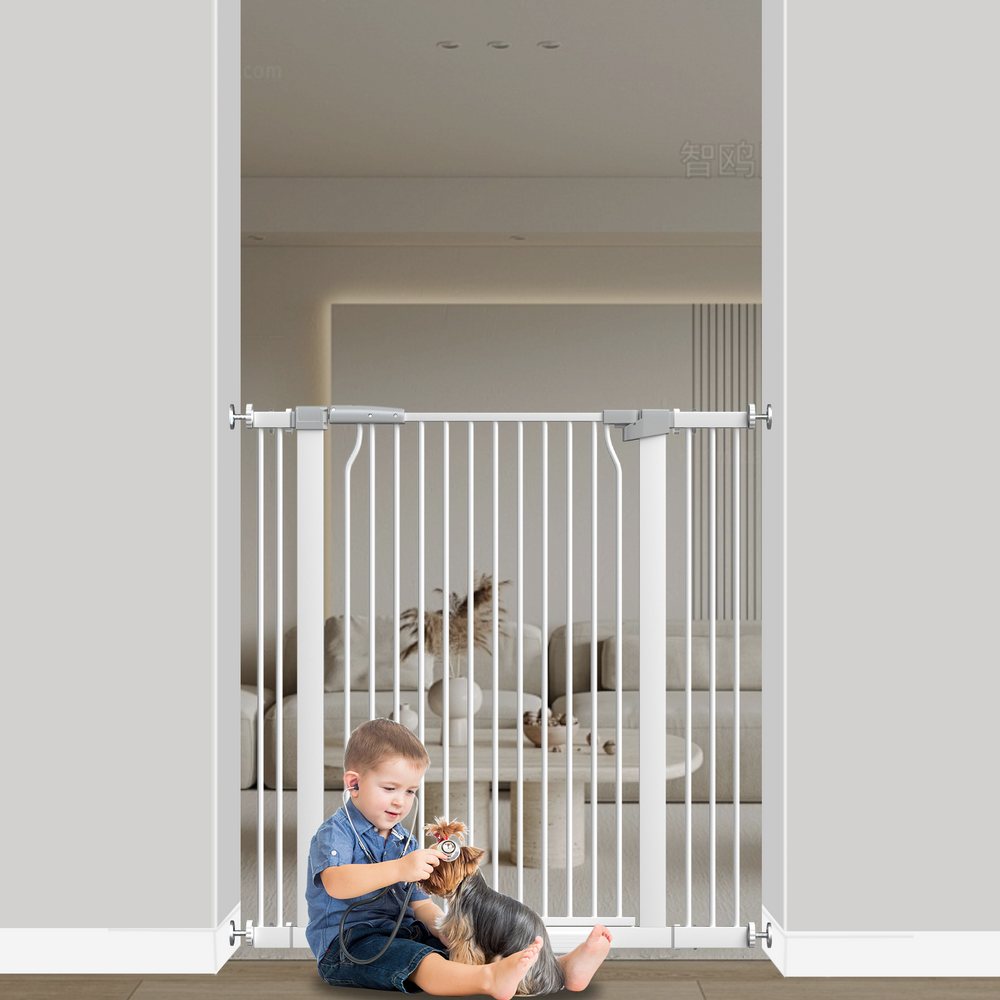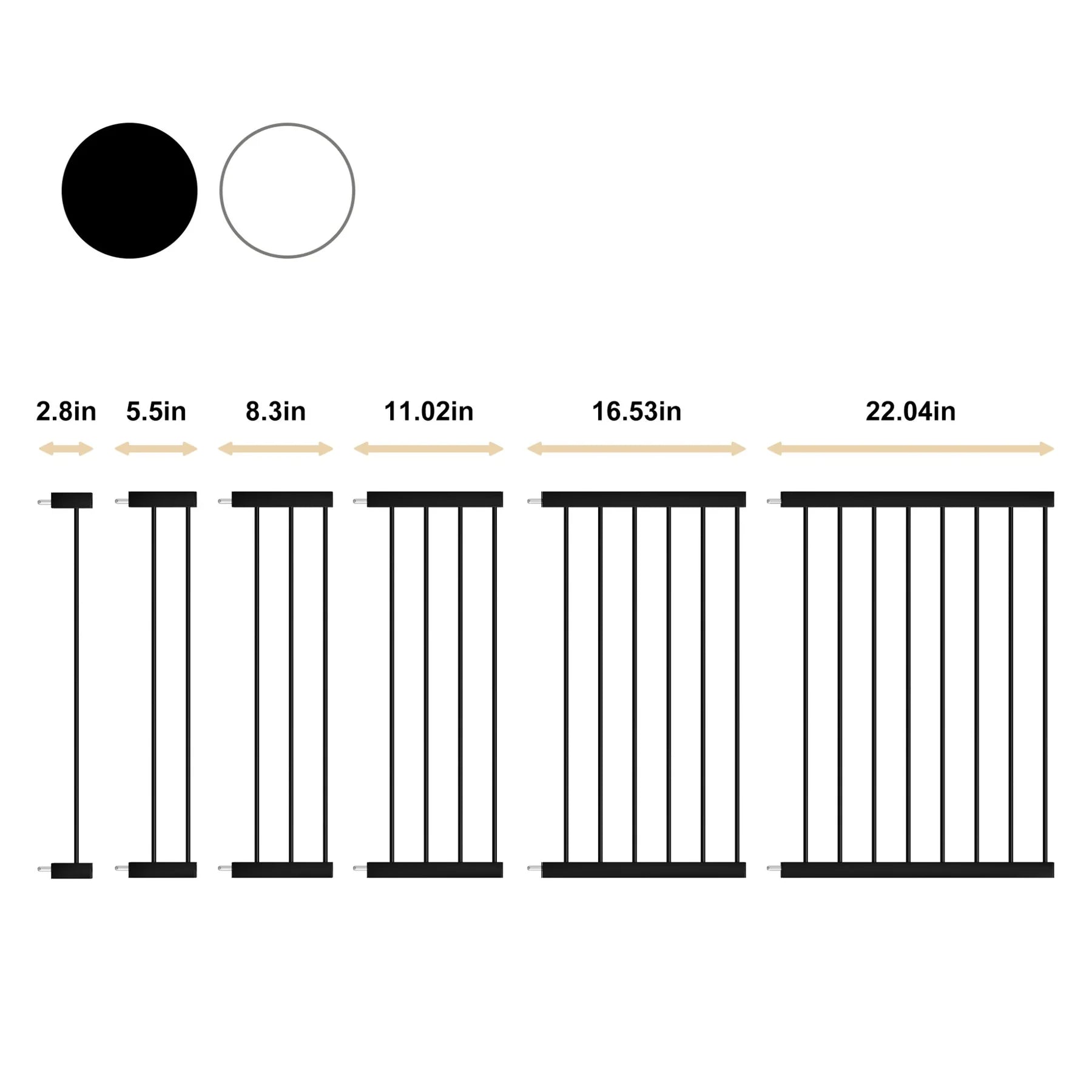6 Best Cat Repellents That Actually Work
Lemon Juice Spray
Cats really don't like the smell of citrus, so a lemon juice spray is a pretty simple and natural way to keep them out of places they shouldn't be. Think of it as a gentle nudge rather than a harsh chemical blast. It's something you can whip up right in your kitchen, which is a big plus if you're trying to avoid buying a bunch of specialized products.
How to Make It
Making your own lemon juice spray is straightforward. You'll need:
- About 3 cups of water
- 3/4 cup of distilled white vinegar
- 1/4 cup of fresh lemon juice
First, boil the water. Once it's boiling, add about half a cup of fresh rosemary. Turn off the heat, cover the pot, and let it sit overnight. The next morning, strain out the rosemary. Pour this mixture into a spray bottle, then add the lemon juice and vinegar. Give it a good shake, and it's ready to go.
How to Use It
Spray this mixture in areas where you want to deter cats. This could be around your garden plants, on your porch, or anywhere else you're having trouble.
Remember, this is meant to be sprayed on surfaces, not directly on your cat. Cats have sensitive noses, so the scent is the deterrent. You'll want to reapply it regularly, especially after rain if you're using it outdoors, to keep the scent strong.
It's a good idea to test it on a small, inconspicuous area first, especially on fabrics or painted surfaces, just to make sure it doesn't cause any discoloration or damage. You might need to spray it a few times a day for the first week to really get the message across to your feline visitors, then you can ease up on the frequency.
Vinegar Spray
Cats really don't like the smell of vinegar. It's pretty potent, and that's exactly why it works as a deterrent. You can whip up a simple spray using vinegar and water.
A good starting point is a 1:1 ratio of white vinegar and water.
If you're worried about the acidity of pure vinegar damaging surfaces, diluting it is the way to go. Just mix equal parts vinegar and water in a spray bottle. Give it a good shake, and you're ready to go. You can spray this around areas you want your cat to avoid, like garden beds or furniture. Just remember, it's meant for the environment, not for spraying directly on your feline friend.
- Preparation: Mix white vinegar and water in a spray bottle. A 1:1 ratio is a good starting point.
- Application: Spray liberally around plants, garden beds, or furniture you want to protect.
- Reapplication: You might need to reapply every few days, especially after rain, as the scent can fade.
Vinegar's strong smell can be a bit much for us humans too, so maybe test it in a small, inconspicuous area first to make sure you can handle the aroma. It's effective, but definitely noticeable!
Citrus Spray
Cats really don't like citrus smells, which is why a citrus spray can be a pretty good way to keep them out of places they shouldn't be. It's a simple DIY solution that uses things you probably already have around the house.
To make your own citrus repellent, you can gather the peels from fruits like lemons, limes, oranges, and tangerines. Boil these peels in water for about 20 minutes. After letting the mixture cool down, just pour it into a spray bottle. It's a natural way to make your home or garden smell nice while keeping the kitties away.
Another option is to mix about two teaspoons of lemon, orange, or lime juice with a couple of pumps of lemon-scented dish soap. This combo is not only safe for deterring cats but also leaves a pleasant, summery scent.
How to Use Citrus Spray
- Initial Application: For the first week, spray the chosen areas generously a few times each day. This helps establish a strong scent boundary.
- Gradual Reduction: After the first week, you can start spraying less frequently, maybe once a day, as your cat begins to avoid the treated spots.
- Maintenance: Continue to 'touch up' the sprayed areas at least once or twice every couple of weeks to keep the scent effective.
Be aware that while citrus is generally safe, some cats might be more sensitive. Always test a small, inconspicuous area first to ensure it doesn't stain or damage surfaces.
Motion-Activated Sprinklers

Motion-activated sprinklers are a pretty solid choice if you're looking to keep cats out of your yard or garden. Basically, these things have sensors that detect movement. When a cat wanders into the zone, whoosh – a sudden burst of water shoots out. It’s not meant to hurt them, just startle them enough to make them think twice about coming back. They're great for covering larger outdoor areas, and you don't have to worry about them harming the cat, which is a big plus.
How They Work
These devices use motion sensors, kind of like the ones on your security lights. When the sensor picks up movement within its range, it triggers a valve that releases a short spray of water. The sudden spray and the unexpected splash are usually enough to send a curious cat running.
Best Use Cases
- Large outdoor areas: Yards, gardens, driveways, or anywhere you need to cover a decent amount of space.
- Protecting specific spots: Keeping cats out of flower beds, vegetable patches, or away from outdoor furniture.
- Deterring multiple animals: While we're talking about cats, these can also startle other unwanted critters like squirrels or raccoons.
Potential Downsides
Cats can be pretty clever, though. Sometimes, they might figure out where the sensor's range ends and just go around it. To keep them guessing, you might need to move the sprinkler around every so often. Also, if you have a really sensitive cat, even a little spray might be too much, or if you have a very persistent feline, they might just get used to it after a while.
It's important to remember that while these sprinklers are effective, consistency in placement and occasional repositioning can help maintain their deterrent effect over time.
Ultrasonic Repellents
Ultrasonic repellents are gadgets that emit high-frequency sound waves, supposedly too high for humans to hear, but really annoying to cats. The idea is that this unpleasant sound will make them want to steer clear of the area. People seem to have mixed feelings about these, though. Some folks swear by them, saying they've really helped keep cats out of their yards or gardens. Others haven't had much luck, finding that cats either ignore the sound or get used to it pretty quickly. It's kind of a hit-or-miss situation, really.
When you're looking at these devices, it's a good idea to check out a few things:
- Coverage Area: Make sure the device can cover the space you need it to. Some only cover a small patch, while others can handle a much larger area.
- Adjustable Frequency: If you can adjust the sound frequency, that might give you more control over what works best.
- Power Source: Some run on batteries, others plug into an outlet, and some even use solar power. Think about what's most convenient for where you plan to put it.
It's worth noting that cats can be pretty clever and might learn to avoid the sensor's range if they can figure out where it is. To keep them guessing, you might need to move the device around every so often.
Some experts suggest that while these can work for outdoor cats, they're generally not recommended for use inside the home. If you have indoor cats that sometimes go outside, you'll need to remember to turn them off when your cat is outdoors.
Granular Cat Deterrents
Granular cat deterrents are a pretty solid option if you're looking to protect a larger area, like your garden beds or flower patches. These little pellets work by releasing scents that cats just don't like. Think of it as a smell-based force field for your plants.
When you're picking some out, just make sure they're safe for your plants and any other critters that might wander through your yard. You don't want to solve one problem and create another, right?
Here's a quick rundown of what makes them work:
- Unpleasant Odors: The main thing is the smell. Cats have sensitive noses, and these granules give off a scent that's a big turn-off for them, making them want to steer clear.
- Discourages Digging: Because they don't like the smell, cats are less likely to dig around in the soil where these granules are spread.
- Covers Larger Areas: Unlike sprays that you might need to reapply often, granules can cover a good chunk of ground and often last longer.
It's important to remember that consistency is key with any deterrent. You might need to reapply them after heavy rain, for example, to keep that scent barrier strong.
These are generally a safe and humane way to keep cats out of specific spots without causing them any harm.
Scent-Based Sprays
Scent-based sprays are a pretty popular way to keep cats out of places they shouldn't be. The idea is simple: cats have a really sensitive nose, so if you spray something with a smell they don't like, they'll probably steer clear. It's like a personal force field for your furniture or garden, but made of smells.
How They Work
These sprays usually contain essential oils or other natural ingredients that cats find unpleasant. Think citrus, peppermint, or even things like rosemary. Some might use synthetic chemicals that mimic these natural scents or work by confusing a cat's sense of smell altogether. The key is finding a scent that's a big turn-off for cats but not too overwhelming for you.
Application Tips
- Location, Location, Location: First, figure out if you need an indoor or outdoor spray. Some formulas don't hold up well to weather, while others might have smells that are too strong for inside your home.
- Spot Test First: Always, always do a spot test on a small, hidden area of whatever you're spraying, especially on furniture or painted surfaces. You don't want to end up with stains or a smell you dislike even more.
- Reapplication is Key: Most of these sprays aren't a one-and-done deal. You'll likely need to reapply them regularly, especially after rain if you're using them outside, or every few days indoors, to keep the scent barrier strong.
What to Look For
- Natural Ingredients: Many people prefer sprays made with essential oils like peppermint, citronella, or rosemary. These are often safer for pets and kids.
- Targeted Behavior: Some sprays are designed to stop scratching, while others deter lounging or chewing. Make sure the product matches the behavior you're trying to prevent.
- Scent Strength: What smells great to us might be a bit much for a cat. Look for options that are effective without being overpowering for human noses.
Cats have a super-sensitive sense of smell, and many common household items that smell good to us can be overwhelming or unpleasant for them. It's all about finding that balance where the scent is a deterrent for them, but not a nuisance for you. Plus, remember that these sprays won't fix underlying issues, they just redirect the behavior. If your cat is scratching the couch, a spray might just make them scratch somewhere else if the root cause isn't addressed.
Physical Barriers

Sometimes, those sneaky felines are just too clever for sprays and scents. When your cat seems immune to even the strongest smells, it's time to bring out the big guns: physical barriers. These are basically just things that block your cat from getting where they shouldn't be. They're great for protecting specific spots, like your prize-winning petunias or that comfy armchair you just reupholstered.
Aluminum Foil
Cats really don't like the crinkly sound and weird feel of aluminum foil. Laying sheets of it down on surfaces like countertops or furniture can be a quick way to make them think twice. If your cat jumps up and lands on a foil-covered surface, the surprise and unpleasant sensation usually make them jump right back down. They'll likely remember that experience and be less eager to try it again. It might not look the prettiest, but it can be surprisingly effective for training.
Mulch, Bark, or Stones
For outdoor areas, especially if your cat has decided your garden is their personal litter box, digging barriers are the way to go. Cats love to dig to bury their business, just like in a litter box. If you make it difficult for them to dig, they'll probably find somewhere else to go. Spreading a layer of mulch, bark chips, or even small stones over the soil can do the trick. These materials are uncomfortable for their paws, making those spots less appealing for digging and doing their business.
Fences
If you're trying to keep your cat out of a larger outdoor space, like a whole garden or yard, a fence can be a solid option. Building a fence can be a bit of a project, taking time and money, but it's one of the most reliable physical barriers. It's especially good for keeping out younger or less agile cats. However, if you've got a particularly athletic or determined cat, they might still find a way over or under, so it's not always foolproof for every feline.
Fences
Fences can be a pretty solid way to keep cats out of your garden or yard, especially if you're dealing with smaller or less adventurous felines. It's like putting up a physical wall that says, "No cats allowed!" Now, building a fence from scratch can be a bit of a project, involving time, money, and some serious effort. But if you're serious about keeping Fluffy out of your prize-winning petunias, it might just be worth it.
Cat Fencing Systems
There are actually specialized cat fencing systems out there designed to keep cats contained within a specific area. Think of them as extra-tall fences or fence toppers that make it really hard for a cat to get over. Some systems even have rollers on top that spin when a cat tries to climb, making it impossible for them to get a grip. While these are usually meant to keep your own cat in, you can use them in reverse to keep other cats out. It's a humane way to create a boundary without causing any harm.
Cat Spikes
Cat spikes are another option, often made of plastic or rubber with blunt tips. You might see them placed along the top of fences to stop cats from climbing over, or even on the ground in garden beds. The idea is that they create an uncomfortable surface that cats won't want to walk on. However, their effectiveness can be hit or miss. Some cats just don't seem to mind them, and others might get used to them over time. Reviews suggest they work for about half the cats they're used on, so it's not a guaranteed solution for every feline.
Thorny Plants
If you're not keen on installing fences or spikes, you can also use nature's own defenses. Planting thorny or prickly bushes like roses, holly, or barberry along the edges of your garden can create a natural barrier. Cats generally don't like walking through prickly plants, so this can be a good way to discourage them from entering your space. It adds a bit of natural beauty while also serving a practical purpose.
Natural Repellents
Sometimes, the most effective solutions are the ones nature provides. When you want to keep cats out of your garden or off your porch without using harsh chemicals, natural repellents are a great way to go. These methods often rely on scents that cats find unpleasant, steering them clear of the areas you want to protect. They're generally safe for the environment, your plants, and even other animals that might wander through.
Here are a few natural approaches you can try:
- Citrus Peels: Cats really don't like the smell of citrus. Scattering orange, lemon, or grapefruit peels around your garden beds or favorite outdoor spots can make them less appealing to feline visitors. Just remember to replace them every so often as they dry out.
- Coffee Grounds: Used coffee grounds, when spread around plants, can act as a deterrent. Not only do cats dislike the smell, but the texture can also be a bit off-putting for their paws. Plus, it's good for your soil!
- Certain Herbs: Some plants themselves have scents that cats tend to avoid. Think about planting things like rue, lavender, or pennyroyal. They can add a nice touch to your garden while also serving a practical purpose.
While these natural methods are generally safe and effective, their potency can vary. You might need to experiment a bit to see which ones work best in your specific situation and reapply them regularly, especially after rain.
It's all about finding what works for your space and your feline guests. These options are a good starting point for a more peaceful coexistence.
Wrapping Up Your Cat Deterrent Strategy
So, we've looked at a bunch of ways to keep cats out of places they shouldn't be. Whether you're dealing with a neighbor's cat digging up your petunias or your own feline friend eyeing the Christmas tree, there are options. From sprays with scents cats don't like to physical barriers that just make a spot inaccessible, finding what works might take a little trial and error. Remember, the goal is to be humane. Cats are smart, and sometimes you might need to mix a couple of methods to get the best results. Just be patient, and keep trying different approaches until you find the right balance for your home and garden.






Leave a comment